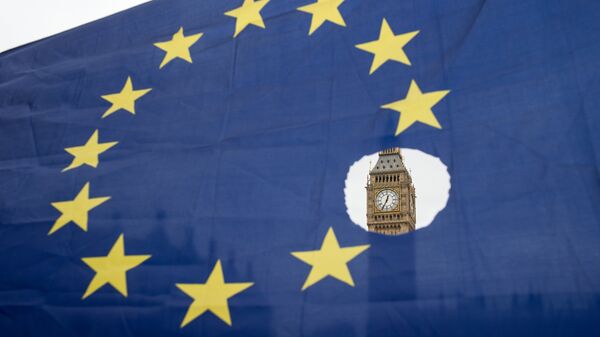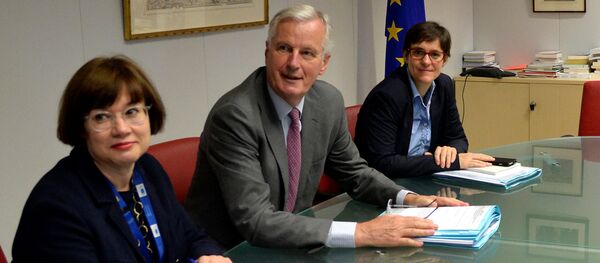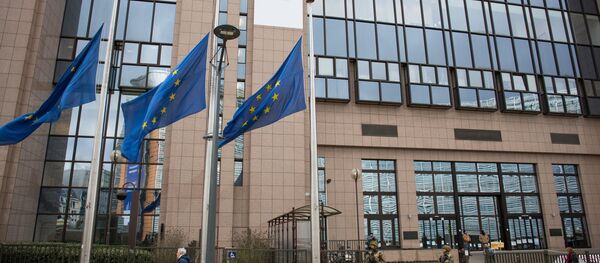Kristian Rouz – Amid the ongoing Brexit negotiations between the EU and the UK, the British representatives are focusing their vision on future trade and economic ties between the bloc and Albion. However, the EU is most concerned with getting a separation payment from the UK and settling other divorce matters before moving forward.
The British cabinet, for their part, as well as more than half of the British public, do not believe that the UK owes money to the bloc, as one of key motivations behind Brexit was getting rid of yearly payments from London to Brussels.
Michel Barnier, chief EU negotiator, says that the most urgent divorce matters must be finalized as quickly as possible, as Brexit is expected to go into effect in March 2019, and, as he said, “time passes quickly”.
“We need UK papers that are clear in order to have constructive negotiations. And the sooner we remove the ambiguity the sooner we will be in a position to discuss the future relationship and to a transitional period,” Barnier said.
In Westminster’s broader view, a future trade deal and mutually-beneficial economic ties would suffice to make up for the Brexit payment the EU requires. However, as the UK economy has recently been showing signs of gradual cooling, the EU team believe they have leverage on Albion.
“For the United Kingdom, the week ahead is about driving forward the technical discussion across all the issues. We want to lock in the points where we agree, unpick the areas where we disagree and make further progress on the whole range of issues,” Davis said.
The UK team say that the negotiations timetable is not flexible, while the excessive pressure from the EU prevents a constructive discussion.
Meanwhile, despite the tough EU stance on the Brexit process, France has signalled that it is willing to commence trade talks with the UK as soon as October. On the political side, the UK’s close ally across the Atlantic might hamper the EU’s hopes for getting a hefty Brexit payment; the Trump administration has repeatedly expressed its willingness to strike a trade deal with the UK.
The UK’s Davis insists the country wants a mutually beneficial trade deal, but there are points on the EU agenda that London will never accept – despite calls from the Labour Party to remain in the single market at least. While a “hard Brexit” scenario is still a distant probability, the EU’s insistence on the divorce payment and certain timeframes is bringing it closer.
The disagreements between the negotiating teams only reflect the deep divide between the political leadership in the UK and the EU. Earlier this month, UK Prime Minister Theresa May presented her view of Brexit to head of the European Commission Jean-Claude Juncker, who said the papers are not “satisfactory”.
“We need to be crystal-clear that we will commence no negotiations on the new relationship – particularly a new economic and trade relationship – between the UK and the EU before all these (divorce) questions are resolved,” Juncker said.
EU officials are also taking into account the divide in the UK’s domestic politics over Brexit, with the Labour Party and the pro-EU Tories hindering the “hard Brexit” fervor of the most avid Brexit proponents. Her Majesty’s Government is trying to balance between these interests, while the EU position on Brexit is coherent – they want the money.
In 2015, the UK paid £17.8 billion as its EU membership fee, meaning the alleged France’s demands that Britain paid another 30 billion euros over three years does not appear to be an attractive proposition.
The future of Brexit negotiations depends on the ruling Tories’ determination to enforce their divorce agenda, the progress on the British-US trade deal, and the EU’s expectations in terms of the exit fee. As of now, the UK is considering a one-time final payment, a fairly small one so it doesn’t impair the Treasury’s ability to spur the domestic economy.





